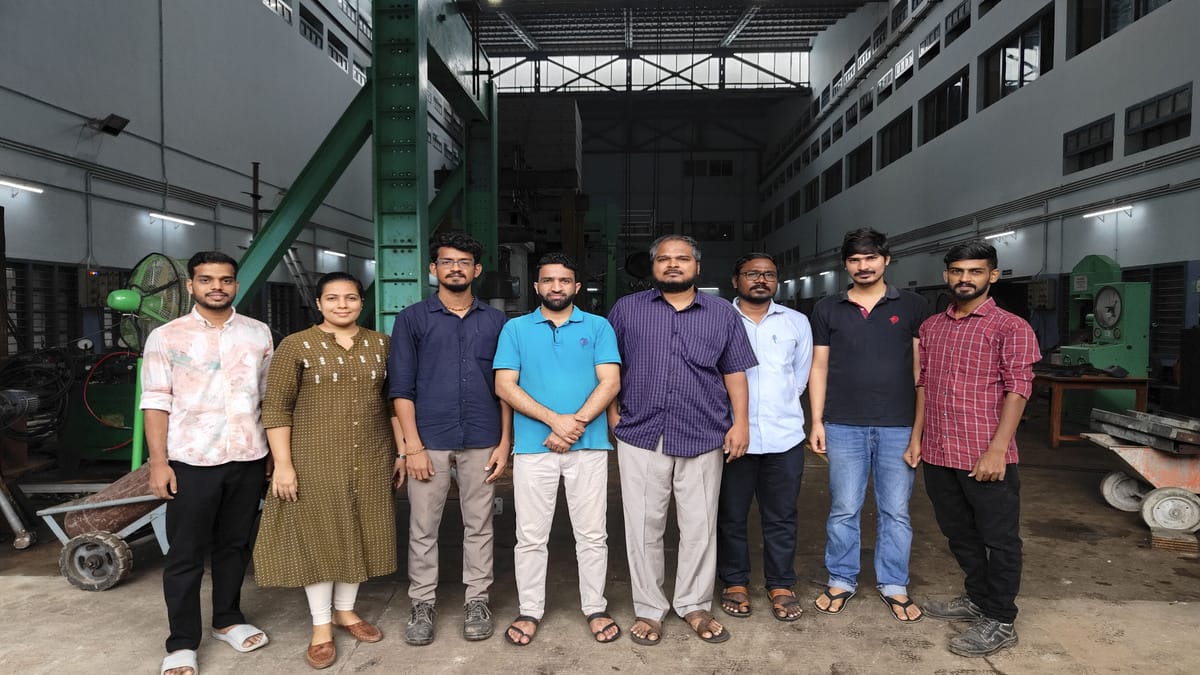IIT Madras develops framework to protect infrastructure from ballistic missiles
Alivia Mukherjee | March 5, 2025 | 01:44 PM IST | 2 mins read
IIT Madras: The research aims to enhance the ballistic resistance of reinforced concrete panels in military bunkers, nuclear facilities, bridges, runways, and other critical structures.

NEW DELHI: Indian Institute of Technology Madras (IIT Madras) researchers have developed a framework for protection of ‘critical’ infrastructure against ballistic missile . The framework is designed to improve the ballistic resistance of reinforced concrete (RC) panels used in military bunkers, nuclear power plants, bridges, and other vital structures.
The framework aims to develop tools to enhance the ballistic resilience of concrete structures. Using computational simulations, researchers analyzed the impact of missiles on RC panels, which form the backbone of several critical infrastructures. The research is expected to aid in developing innovative designs that mitigate localized damage from projectile impacts.
Challenges in protecting concrete structures
As per IIT Madras, concrete structures, such as bunkers and nuclear buildings, are susceptible to penetration, perforation, scabbing, and spalling when subjected to projectile impacts. The ability to withstand these forces is crucial to maintaining the structural integrity of facilities. Enhancing their resilience ensures protection against potential missile or debris impact.
Use of ballistics in infrastructure protection
Ballistics, the study of projectile motion and impact, is commonly applied in defense and security engineering. This field plays a crucial role in designing protective structures, including bunkers, nuclear power facility walls, bridges, and other critical infrastructure.
FE simulation
Researchers at IIT Madras carried out their study using ‘Finite Element’ (FE) simulation, a computational method for analyzing and modeling physical phenomena in engineering and science. This technique is based on the Finite Element Method (FEM), which is used to solve complex problems involving partial differential equations, particularly in areas such as structural mechanics.
Alagappan Ponnalagu, assistant professor, department of civil engineering at IIT Madras, along with research scholar Roouf Un Nabi Dar, led the study. Their framework introduces a performance-based design framework using Depth of Penetration (DOP) and 'crater Damage Area' metrics. Additionally, they proposed a probabilistic formula to estimate crater diameters in RC panels. The research findings have been published in the peer-reviewed journal ‘Reliability Engineering and System Safety’.
Future application
Ponnalagu emphasised the need to develop lightweight, cost-effective, and sustainable ballistic-resistant modular panels. These panels could be deployed in bunkers along border regions and remote areas to enhance security infrastructure.
Dar highlighted the study’s significance, stating that the proposed framework ensures resilience against projectile penetration and crater formation in RC panels.
“A probabilistic approach is taken to formulate a reliable formula for quantifying unexplored crater damage, based on well-established Bayesian methodology for RC panels that takes into account uncertainty. This caters the need to take care of uncertainties that deterministic models do not. The probabilistic model proposed by IIT Madras Researchers for estimating crater diameter in RC panels under projectile impact was validated with several experimental test results from the literature. The agreement of the predicted crater diameter with the experimental results ensures its reliability and accuracy,” said Dar.
Follow us for the latest education news on colleges and universities, admission, courses, exams, research, education policies, study abroad and more..
To get in touch, write to us at news@careers360.com.